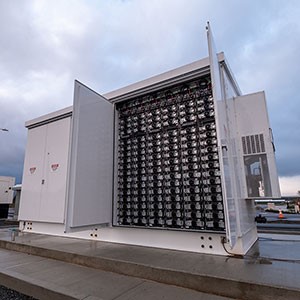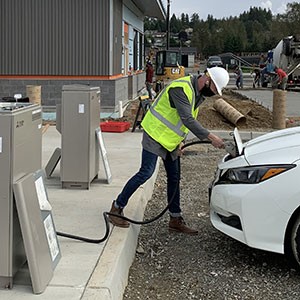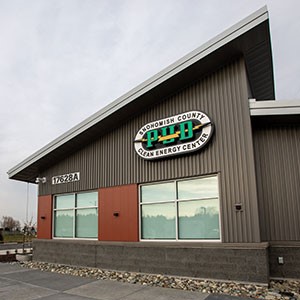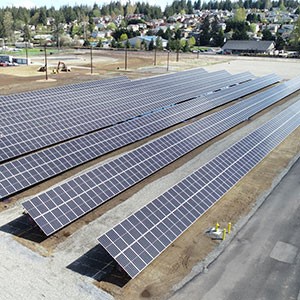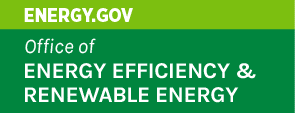Executive Order directs City departments to implement new carbon-based building performance standards, expand transit access and Healthy Streets, and advance clean energy workforce development
On Nov 1st Seattle Mayor Jenny A. Durkan announced a new Executive Order directing City departments to accelerate action toward net zero emission buildings, healthy and equitable transportation, and clean energy workforce development to advance climate justice. Actions announced are projected to reduce the City’s building carbon emissions an additional 27% by 2050.
“From a new normal of smoky summers and dangerous heat in Seattle, I have never seen the impacts of climate change that we are now facing,” said Mayor Jenny Durkan. “We’ve invested billions to support green transportation, efficient buildings, and other policies to mitigate climate change, but we know we need to do more to reach net zero. Cities are leading the way to take real action – our work in the last four years is making a commitment to reduce our building emissions by nearly 50% and lead the nation on climate justice and equity.”
Buildings account for more than one third of Seattle’s climate pollution and are one of the fastest growing sources of emissions. Mayor Durkan’s Climate Action Executive Order will:
- Direct the Office of Sustainability & Environment to create legislation for Carbon-based Building Performance Standards for existing commercial and multifamily buildings 20,000 sq ft or larger in 2022. This standard is estimated to reduce building greenhouse gas emissions 27% by 2050.
- Prohibit fossil fuels in City-owned buildings by 2035 to continue Seattle leading by example.
- Provide options to lower upfront and operating costs for affordable housing to address the climate crisis and improve resilience as we build, operate, and maintain affordable housing.
“Seattle needs to take serious and significant action to reduce greenhouse gas emissions from buildings. A carbon-focused building performance standard is a cornerstone to that effort and will build on the success and work at the state and city level to reduce energy use,” said Amy Wheeless, Senior Policy Associate at the NW Energy Coalition. “This bold action must also come with supportive policies that ensure the benefits of this transition are equitable and support affordable energy services.”
Key provisions in the Executive Order include:
- Expanding free transit for SPS Middle and High School students with additional ORCA cards for middle school students. Announced in 2018, Seattle’s ORCA Opportunity is now available to up to 8,000 additional middle school students, 15,000 high school students, and more than 1,000 Seattle Promise students.
- Expanding Seattle’s Stay Healthy Streets to establish City’s first urban pedestrian zone. Potential sites for the urban pedestrian zones will be identified by December 31, 2021 for implementation in Summer of 2022.
- Taking legislative and permitting action to incentivize electrification and make it easier for residents, businesses, and governments to transition away from fossil fuels and go electric.
- Launching $1 million pilot to convert heavy-duty diesel trucks operating in the Duwamish Valley to electric to reduce carbon pollution and diesel emissions.
“Expanding ease of access to public transit is a key element of creating a climate resilient and socially equitable city,” said Alex Hudson, Executive Director of Transportation Choices Coalition. “This transit expansion project will help get more young Seattleites where they need to go safely and reliably, while also lowering transportation costs for families and empowering a new generation of transit riders.”
“EVgo applauds the City of Seattle for making continued advancements toward a fully electrified transportation sector,” said Sara Rafalson, Vice President of Market Development and Public Policy at EVgo. “Public-private partnerships, coupled with critical efforts to streamline permitting, are important tools to accelerate infrastructure investments for fleets and personal use vehicles alike.”
In addition to policies that reduce emissions in the buildings and transportation sectors, the City is working to advance a more diverse clean energy workforce to ensure a just transition off of fossil fuels. Key provisions of the Executive Order include:
- Launching City clean energy workforce committee to advance the economic equity goals of Seattle’s Green New Deal in alignment with the Green New Deal Oversight Board.
- Deploying new 2022 clean energy workforce investments and identify City capacity and funding needs and regional partnerships to prepare, connect, and diversify workers in the growing clean energy sectors.
“Seattle has been a trailblazer in energy efficiency, mode shift to transit, electrification, smart growth near transit, eliminating fossil fuels from homes and commercial buildings, and climate justice, but we need to do more,” said Michelle Caulfield, Interim Director of the Office of Sustainability & Environment. “I’m proud to see Seattle’s leadership on display at COP26 and the Mayor standing with leaders from across the globe to confront the climate emergency head-on.”
Mayor Jenny Durkan announced the executive order from Glasgow, Scotland, where she is representing the City of Seattle at the COP26 Climate Summit which brings Cities and nations together to accelerate action towards the goals of the Paris Agreement and the UN Framework Convention on Climate Change.
“Cities have proven time and again their ability to push the envelope on climate action and consistently raise ambition – the Building Performance Standard (BPS) announced today by Mayor Durkan is a great example,” said Kelly Shultz who leads the sustainable cities program at Bloomberg Philanthropies. “Policies to lower building emissions are critical to ensuring a sustainable, more inclusive future. We celebrate this announcement and look forward to continuing our collaboration with cities leading the fight against climate change like Seattle.”
“It’s exciting to see these next steps from a city that already has ambitious climate policies on the books,” said Elizabeth Stampe, a city strategist at NRDC with the Bloomberg Philanthropies American Cities Climate Challenge. “Policies like free transit for kids and cleaner energy in large buildings do more than reduce greenhouse gas emissions: they make Seattle a better place for all people to live and breathe. A zero-emission pedestrian zone is an especially important way to reduce pollution and make way for safer walking in Seattle. As the City makes good on these commitments in the coming year, we expect to see equity front and center alongside decisive climate action.”
The City of Seattle has already led bold action to advance energy efficiency and decarbonization in buildings, including a new commercial energy code that is among the strongest on climate in the nation, an Oil Heat Conversion Tax to fund low-income household conversions from oil heat to electric heat pumps, a ban on fossil fuels in new municipal buildings, accelerated transportation electrification including expanding bus-only lanes and transit capital investment, 52 miles of new bike facilities in the last five years, EV Readiness Ordinance requiring EV-ready electrical service in new off-street parking stalls, environmental and racial justice policies, and more.
